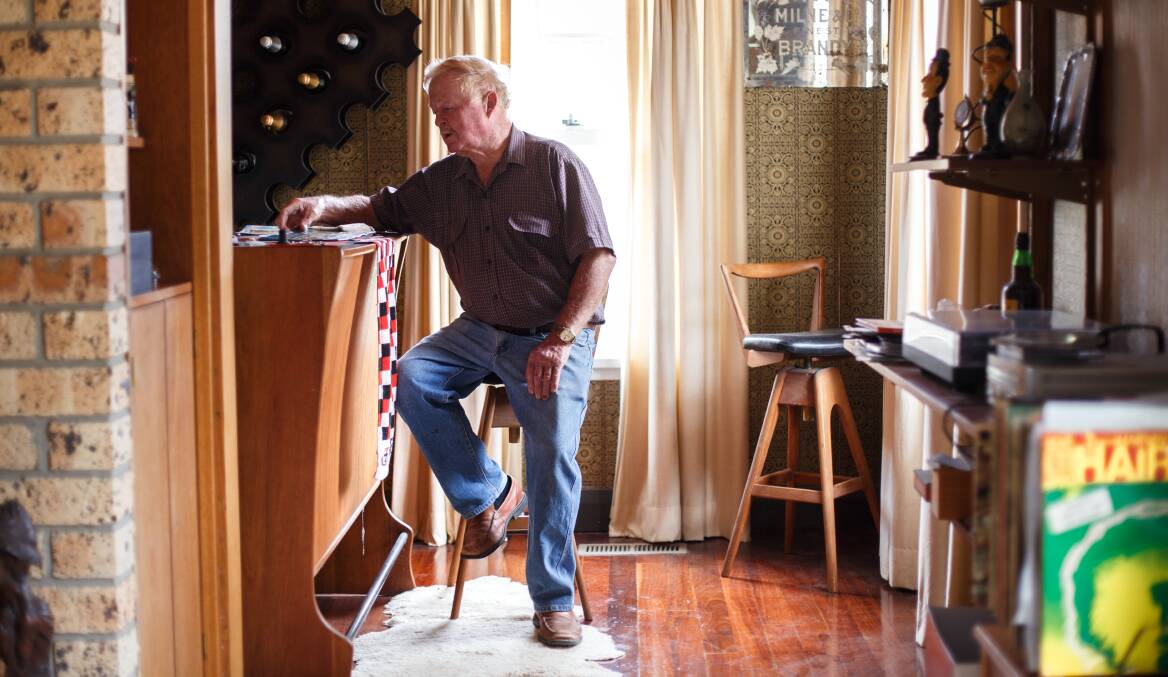
"It did me sit me on my backside," Henry John Bradley said about his terminal cancer diagnosis.
The 79-year-old retired builder was diagnosed with mesothelioma in December 2022.
The cancer was caused by breathing in asbestos dust and fibres from products manufactured and supplied by Amaca Pty Ltd while he worked in construction.
Amaca, a now insolvent company, made products containing asbestos between 1937 and 1987.
Last week, the 79-year-old, who has lived in Ainslie since the 1940s, was awarded more than $832,400 in damages after taking Amaca to the NSW Dust and Diseases Tribunal.
Mr Bradley, known as John, told the Canberra Times he was "quite surprised" at the sum.
"[Amaca] kept making offers and I knocked them back. At the end, I said to the lawyers and barrister: 'We'll leave it in the judge's hands'."
While Mr Bradley is living in a motel at the moment, he plans to buy a granny flat in Ainslie.
He is adamant not to go to a retirement home.
"I can have a little veggie garden, and I've got a fishing boat, and things I want to do," he said.
Last week, Justice Wendy Strathdee found Amaca's negligence had caused the cancer.
She also found Mr Bradley "spends a lot of time ruminating, lying awake at night, wondering about what his retirement may have been had he not been diagnosed with a terminal condition".
"[Mr Bradley's] prognosis is bleak ... his life has been destroyed, with an expected suffering period exceeding three years, leading to a 'very undignified death' worsened by his awareness of its inevitability and imminence," Justice Strathdee said in a published decision.
Prior to the illness, Mr Bradley lived an active life, and worked until December 2022 when his shortness of breath worsened and he retired.
"He was planning to go on a cruise and continue his past time of fishing," the judge stated.

Mr Bradley had been the president of the Canberra Fishing Club for 15 years, and on the board of the Ainslie Football Club for 30 years.
"He was a happy man," Justice Strathdee states in the decision.
That same month, Mr Bradley was admitted to National Capital Private Hospital and 3.5 litres of fluid was drained from his right lung.
Seven days later, he was diagnosed with cancer.
Mr Bradley described this life-changing moment to the tribunal.
"I actually broke down when I was told, and I cried," he said.
"I thought 'why should that happen to me?' Because I'd worked hard all my life.
"I'm very depressed about it, really. I'm very rundown. It has affected me."
While immunotherapy treatments have stabilised his condition, Mr Bradley experiences side effects including pain and numbness in his hands, fatigue and shortness of breath, as well as nausea.
Mr Bradley told the tribunal: "I do even have problems now picking up my cup of tea."
"[It] seems I've got to put my hand under to hold it still."
Justice Strathdee said Mr Bradley "can do light domestic tasks, but needs to hold onto handrails when on stairs and only makes very simple food for himself".
"He has been a very independent and private man, both of which have been stripped from him by his disease, which causes him to spend a lot of time in the motel resting and feeling very unwell," she stated.
"[Mr Bradley] struggles emotionally, experiencing sadness, depression and anxiety as a consequence of his diagnosis, and not being able to fulfil his retirement plans."
The money awarded by the tribunal includes future costs for medical expenses, aids, assistance and palliative care.







